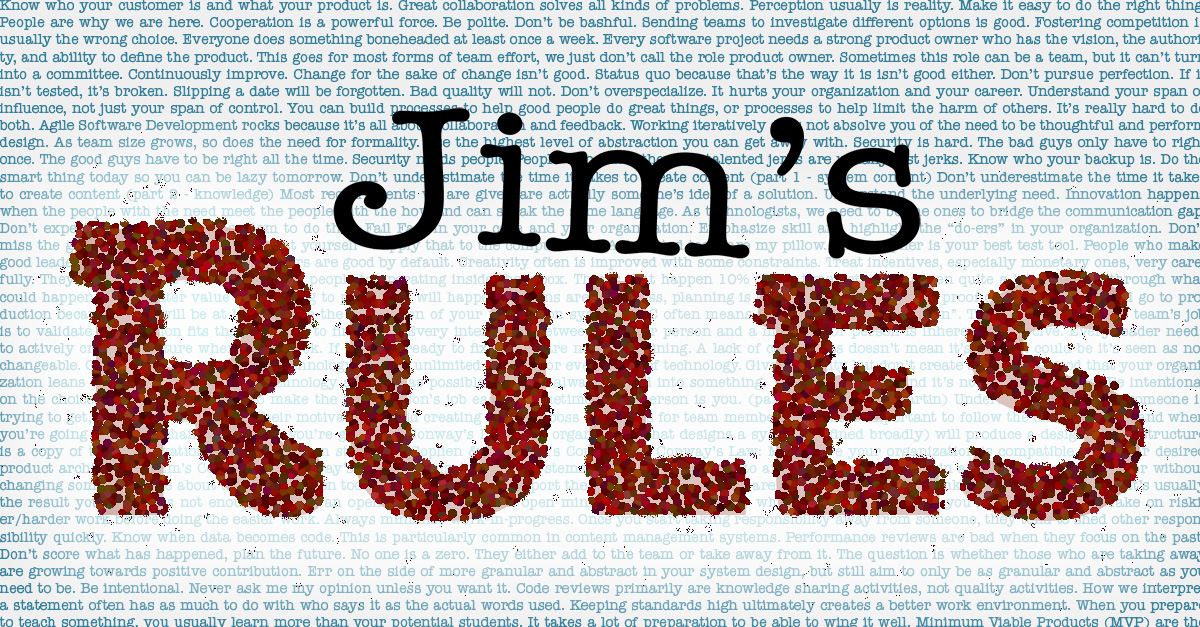Be a Leader in Thought and Deed

If you have seen my LinkedIn Feed, you probably know that I’ve taken a new job leading Information Technology for biBerk Business Insurance. With the role change, I did a little reflection on habits and attitudes that have served me well over the years. For 2024, I’m going to do a series of those reflective thoughts and keep them to one-third to half of the length of what I’ve averaged over the last couple of years. I’m also going to try a bit different style, focusing on making these more like notes instead of articles. This time, a little thinking on thought leadership and working with your “head in the clouds and feet on the ground”.
Most organizations don’t need thought leaders, they need thought leadership. That is, most organizations do not need people who spend all of their time with their head in the clouds and their feet never touching the ground. They need people who can look to the long term while acting in the short term regardless of the role they are in.
Whether the role is Chief Technology Officer, enterprise architect, business strategist, chief researcher, or whatever, there’s a tendency to picture strategic roles as being nothing but a long term visionary. The all too real danger is that the individual looks so far into the future that they never bring any value to the organization. The world is constantly changing, so a strategy that’s looking too far in the future will never connect with reality. The most common mistake I’ve seen is CTOs or enterprise architects to try to overbuild a their enterprise technology strategy, only to see the wider technology landscape completely change before they can roll it out and thus make many millions in investment moot. If you took 6 years to build the be-all and end-all enterprise platform using SOAP web services, it was obsolescent before it got a chance to be released.
The other mistake I’ve seen this sort of detached “thought leader” make is thinking that they rain the thoughts down on others and then those other people go implement the lofty strategy. They forget to listen to the implementers (the “little people”) and fatal flaws in the strategy never get heard let alone addressed until tons of time and money is spent. If I had a dime for every time I’ve seen that happen, I’d have a lot of dimes.
Get some stuff done today. There’s no value in a solution that makes 10 million dollars next year if your company runs out of money next week. For every long term thing you’re doing, make sure you have something you can deliver value on today and be ready to embrace change, no matter where that change comes from.
Be the leader who is willing to roll up your sleeves and do the tedious tasks, not just focus on the glamourous tasks and deep thoughts. When I was Vice President of Modern Solutions at Hitachi Solutions, I loaded and emptied a lot of dishwashers so that everyone else would have a clean coffee cup. Was it beneath me? No. Everyone else had a job to do too and frankly, I could probably spare 5 minutes more than they could. You will build a lot more respect that way than trying to sit in an ivory tower and dictate deep thoughts.
Good leaders focus on helping others, not being on top. Even if you are the newest person on the team, you can still lead. Be diligent in your work, emphasize doing it well, and strive to be helpful. If someone asks for help, then help! I can’t tell you how many times just explaining a problem to someone else helped me solve the problem. There’s times they didn’t even need to say anything at all! That doesn’t take tons of experience, just a willingness to lead by helping.
When we’re senior leaders, we shouldn’t let seniority blind us to the ability of everyone to lead. I’ve been the junior person who was less distracted by other responsibilities and therefore in the best position to take on a new initiative or introduce a technology. Thankfully, I had leaders willing to take the risk on me.
At every point in my career, this view of leadership kept me engaged with the people around me and with my organization’s leadership. Sure, maybe some of my peers had less stress along the way, but I have a lot more fun and get a lot more fulfillment out of seeing people use what I help create. I am happier being respected for being useful instead of trying to strike awe into people with some sort of Lex Luthor level of intellect.
